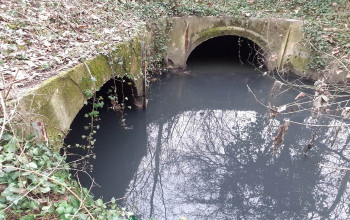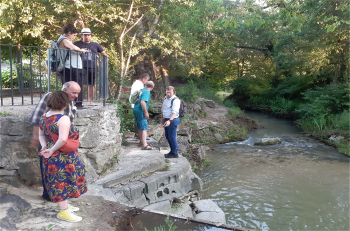The collapse of biodiversity is particularly pronounced in aquatic environments, which are subject to numerous anthropogenic pressures. To address this, the European Union’s Water Framework Directive (2000) calls on member states to develop conservation and restoration policies. In France, these policies, implemented under the guidance of Water Agencies, are carried out by local territorial managers. However, they remain technocentric and top-down in nature, often sparking local controversies despite efforts at fostering dialogue.
 RIZE - © Photo : Métropole Lyon
RIZE - © Photo : Métropole Lyon
Over several years, it has become evident that restoration projects continue to face challenges in achieving their goals (Lusson, 2021). These challenges include disagreements among experts, a lack of political support, and conflicts over resource use. Yet, far from being mere obstacles, such controversies could serve as opportunities for collective exploration and co-construction, paving the way for restoration projects that are both ecologically and socially ambitious.
 AUZON - © Photo : Christelle Gramaglia
AUZON - © Photo : Christelle Gramaglia
This doctoral research, building on the participatory RESTEAU’DEBAT project, aims to pursue three main objectives:
- To produce a comprehensive overview of participatory approaches in the design and support of restoration projects at the national level (France);
- To support the implementation and participatory monitoring of two restoration projects;
- To assist the emergence of riparian communities invested in the recovery of rivers
This is a collaborative research project that seeks to identify the factors contributing to the success of restoration policies beyond purely technical interventions—embracing the notion of care. To this end, diverse methods will be employed, including individual and group interviews, the facilitation and observation of participatory workshops, and the support of citizen science initiatives. These efforts will be carried out in collaboration with the french team from the RIPACTIV project (ZABR) and the european team from the RiVive project (Biodiversa).
Key words: Environmental Socio-Anthropology - Participatory Approaches - River Restoration - Riparian Citizenship






